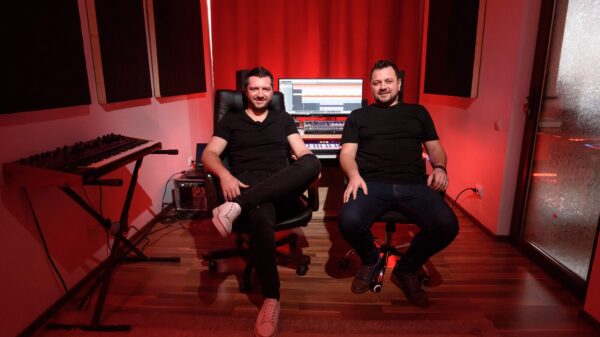A music producer plays a multifaceted role in creating songs and bringing musical projects to life. But what exactly does a producer do? This guide examines the core responsibilities of a producer and what the job entails in different genres and contexts.

Overview of Music Production
Music production involves taking a song from its raw, elemental state all the way through recording, arrangement, performance, sound design, mixing, and final delivery. The music producer oversees this entire creative process.
Production spans both technical and creative duties:
Technical
- Recording/engineering
- Editing
- Mixing
- Mastering
- Software/hardware
Creative
- Collaboration
- Song development
- Sound selection
- Arrangement
- Coaching artists
Successful producers blend these technical and creative skills to realize the full potential of musical works. Top producers like Rick Rubin bring a unique vision that elevates great songs into iconic recordings.
As Rubin explains in his book The Studio Stories: Volume 1, he takes a holistic role in “helping to make the best album possible.”
Core Music Producer Responsibilities
While the specific duties of a producer depend on the genre and project, key responsibilities often include:
Song Development
- Providing feedback on song arrangements, structures, and composition
- Helping select singles and track sequencing for albums
Recording & Engineering
- Overseeing the recording process, microphone setups, signal flow
- Engineering sessions by operating mixing console, DAW, and equipment
Sound Design
- Guiding the overall sound and feel of the production
- Directing the instrumentation, playing, tones, and textures
Directing Performances
- Coaching artists and musicians to get the best takes and performances
- Providing constructive criticism to refine performances
Mixing & Editing
- Mixing tracks and adjusting levels, EQ, effects, panning, etc.
- Editing takes and parts to create cohesive arrangements
Project Management
- Organizing recording sessions, equipment rentals, and other logistics
- Managing studio time and budgets
Quality Control
- Maintaining consistency across an entire project or album
- Ensuring songs are ready for professional release
Music Production Styles
Producers can take vastly different approaches depending on the genre and their individual style:
Hands-On Producer
Some producers take an intimate, hands-on role performing or providing parts themselves and engineering each session. This allows maximum creative control.
Collaborative Producer
Many producers prefer an open, collaborative style where they listen to artist ideas and provide feedback but let the musicians handle the performances.
Live/Band Producer
For bands and live recordings, the producer captures energetic performances and makes minimal overdubs or edits.
Hip-Hop/Rap Producer
Hip-hop producers often craft instrumental tracks and beats for rappers to perform over. Coaching the vocal delivery is key.
EDM/Dance Producer
Dance producers focus on cutting-edge sounds, grooves, synth tones, and overall vibes often creating tracks themselves.
Traditional Pop Producer
For commercial pop, producers help craft hits by refining melodies, arrangements, and vocals while keeping tracks tightly structured.
The production process varies based on the genre conventions and the working dynamic between the producer and artist.
Working Relationship With Artists
Developing strong working chemistry is crucial for producers. Balance is needed between:
Guiding the Creation
Great producers diplomatically guide the creation, offering critical feedback and creative suggestions without being overbearing.
Respecting the Artist
Even while directing certain elements, the producer respects the artist’s creative autonomy and vision. They enhance not override performances.
Effective Communication
Communication and people skills enable explaining musical ideas in a way artists can understand and connect with.
Maintaining Morale
Producers keep spirits and energy high through long recording sessions. Their optimism and enthusiasm inspires great performances.
Veteran producer Rick Rubin is renowned for forging close artist relationships and providing calm, insightful guidance in the studio. This allows the musicians to feel comfortable taking risks and delivering peak performances.
Music Producer vs. Recording Engineer
Producers are sometimes confused with recording engineers and the roles overlap at times. But there are differences:
Producer
- Oversees entire creative process
- Focuses on musical elements
- Collaborates with songwriters
- Coaches performances
- Strives for cohesive artistic vision
Engineer
- Sets up and operates studio gear
- Focuses on technical execution
- Records and edits performances
- Mixes and masters recordings
- Strives for best sound quality
Most producers have engineering skills. But pure engineers just handle technical tasks and don't guide the creative process like a producer.
Music Producer Career Paths
Some ways producers get started in the industry include:
- Starting as an assistant engineer then working up to producer
- Being an artist themselves then expanding into production
- Interning under an established producer
- Attending production/engineering schools
- Building own home studio and working with unsigned artists
- Producing their own tracks to demonstrate abilities
- Networking relentlessly to get opportunities
There are no set prerequisites to become a producer. Diverse backgrounds like being an artist, musician, engineer, or businessperson can translate well into production. But exceptional ears, artistic vision, people skills, and relentless drive open the most doors.
Mentorship under seasoned professionals provides invaluable real-world experience. As producer Rick Rubin advises: observe, absorb, and seize any opportunity to learn from the greats.
Music Producer Pay
Producer income varies greatly depending on factors like:
- Number of projects worked on
- Album vs single production
- Major label vs independent artists
- Genres like hip-hop, pop, EDM, etc.
- Producer experience and reputation
- Whether production is a flat fee or royalty-based
According to Berklee College of Music, typical producer pay includes:
- $200-$500 per song for unknown artists
- $500-$5,000 per song for independent label artists
- $10,000-$75,000+ per album for major label artists
The top A-list producers earn $100,000+ per track working with major artists and often get royalty points worth millions. Hip-hop producers can demand especially high fees. Developing clout and credits with successful artists drives up rates over time.
Skills Every Producer Needs
Key skills for succeeding as a music producer include:
- Musicality – Deep understanding of song structure, theory, and intonation
- Ear training – Identifying frequencies, instruments, and tonal balance
- Technical abilities – Operating DAWs, mixing consoles, plugins, etc.
- Communication – Explaining ideas in simple, relatable ways
- Negotiation – Navigating legal standards for fees, points, rights
- Psychology – Motivating artists and managing temperaments
- Time management – Working effectively within budgets and deadlines
- Creative vision – Hearing the full sonic potential of the music
- Work ethic – Willingness to put in long hours and problem solve
- Networking – Developing relationships with artists, managers, and labels
The right blend of creativity, motivation, and people skills makes a producer excel. Technical chops are mandatory but fostering greatness in artists is the ultimate goal.
Recommended Books on Music Production
- The Studio Stories: Volume 1 by Rick Rubin – An inside look at Rubin’s approach to legendary albums with Johnny Cash, Red Hot Chili Peppers, and more.
- All You Need to Know About the Music Business by Donald Passman – An excellent primer on music industry legal standards, deals, and royalty structures.
- The Art of Producing by David Gibson – Tips and strategies for producing great recordings in any genre.
- Zen and the Art of Mixing by Mixerman – Timeless mixing techniques and producer mindsets.
- Behind the Glass: Top Record Producers Tell How They Craft the Hits by Howard Massey – Interviews with producers like Quincy Jones, Arif Mardin, and Mick Jones.
FAQ About Music Producers
Do producers write the song?
Typically producers don’t write the song itself including lyrics and melodies. But they may collaborate on arranging song sections or adding instrumental parts.
Do producers make beats?
For hip-hop and certain EDM styles centered around tracks, producers often create original beats. In bands, producers don’t make beats but may shape the drum and percussion sounds.
What DAW do most music producers use?
The top DAWs used by producers include Ableton Live, Logic Pro, Pro Tools, FL Studio, Cubase, and Reason. Many work across multiple DAWs.
How can I find a producer for my music?
Great ways to find potential producers include networking in your local scene, contacting artists you like to ask who they work with, and searching online production forums and marketplaces.
What’s the difference between producer and executive producer?
The executive producer oversees business operations and financing but isn’t involved creatively. Producers handle the studio process and artistic direction. Roles sometimes overlap.
Do I need connections to become a producer?
Connections certainly accelerate career growth. But determined upstart producers can contact unsigned bands online or develop skills until discovered. Consistent great work and self-promotion matters most.
Conclusion
At the heart of it, a music producer guides musical projects from initial creation through final delivery by blending technical and creative direction. But each producer brings unique working styles and sensibilities. With persistence and dedication to the craft, aspiring producers can find their niche and build an acclaimed career collaborating with top artists to shape iconic music.


















